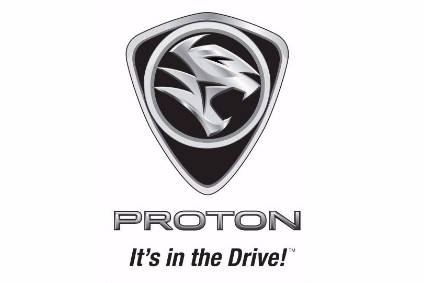
Shares in Proton Holding’s main shareholder, DRB-Hicom Bhd, rose to a three-month high last week as speculation mounted that China’s Geely Automobile Holdings is the front-runner to take control of Malaysia’s first national car company.
DRB-Hicom last year began a systematic search for a foreign strategic partner for Proton, following many years of underperformance by the national carmaker as it struggled with increasingly demanding R&D requirements and ever rising competition in its home market.

Discover B2B Marketing That Performs
Combine business intelligence and editorial excellence to reach engaged professionals across 36 leading media platforms.
Once the main driving force of the Malaysian automotive industry, Proton’s share of its domestic vehicle market dropped to just over 12% last year, after sales fell by close to 29% to just 72,290 units.
This compares with 207,110 sales by domestic rival Perodua and is significantly lower than those of Honda, which sold 91,830 vehicles in this market last year.
At its peak in the mid-1990s Proton controlled close to 60% of the domestic vehicle market and enjoyed peak global volumes of around 215,000 units.
Proton’s exports also have fallen over the years, with the company unable to keep up with increasingly stringent emissions regulations in some key overseas markets and growing competition from other Asian automakers.
Its global vehicle sales are estimated at less than 80,000 units last year – clearly an unsustainable level even with ongoing government support in key areas such as R&D and domestic market protection.
According to local reports, investors have been accumulating shares in DRB-Hicom ahead of a long-expected acquisition announcement in the next few months. They have been emboldened by talk that Geely Automobile is now a serious prospect to partner Proton.
France’s PSA Peugeot Citroen, in which China’s Dongfeng Motor has a 14% stake, also is seen as serious suitor for the embattled Malaysian carmaker – behind Geely.
Proton has held strategic partnership talks with most leading global car companies over the years until the Malaysian Government sold its controlling stake to DRB-Hicom in 2012. These talks inevitably ended without success, mainly because of the Government’s reluctance to give up control of the company.
Historically, Proton was established on the back of a multi-model OEM agreement with Japan’s Mitsubishi Motors and while Proton has made significant efforts to develop its own models and engines it still relies on products sourced in CKD form from other automakers to fill out its showrooms.
The Proton Inspira, launched in 2010, is a rebadged Mitsubishi Lancer compact sedan, while the 2013 Perdana flagship sedan is a rebadged Honda Accord. At the end of last year the company launched the Ertiga, a rebadged compact MPV of the same name sourced from Suzuki in Indonesia.
Proton’s negotiating position is significantly weaker now than at any time in its history. There is growing reluctance at home for indefinite government support of the ailing car-maker and this is also reflected in the brand’s sales performance.
DRB-Hicom also is increasingly keen to offload the loss-making national carmaker from its balance sheet and focus on its other more profitable businesses.The company is seen as being more than willing to give up at least a 51% stake to the right buyer.
Geely Automobile, which also controls Swedish automaker Volvo Cars, has seen its stock appreciate more than 260% in the last 12 months – helped by strong growth in its home market. Last year the company posted a 46% rise in domestic sales to 778,000 units.
Geely’s overseas presence is very limited, however, outside its Volvo Cars subsidiary. Proton would provide Geely with significant production capacity and a platform to expand its presence in global markets, not just in southeast Asia.
Many potential synergies would be available to the two companies, with a fresh range of new models available to strengthen the Proton line-up and crucial engine technology. Reducing the R&D burden on Proton would be a major advantage.
Along with the acquisition of Proton, Geely would also gain Group Lotus, a well-respected UK-based sports car brand with significant growth potential as well as advanced chassis engineering capabilities.






